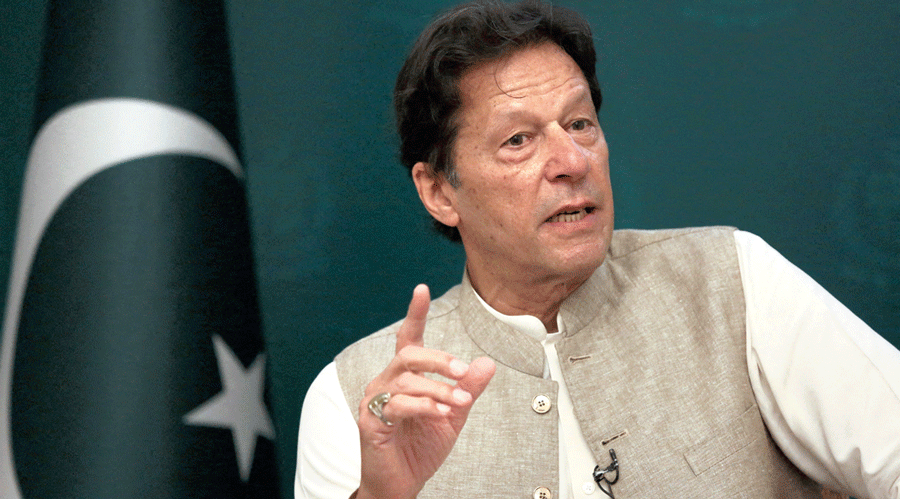Former Pakistan prime minister Imran Khan has raised Rs 5 billion through an international telethon for the people affected by the devastating floods in the country, according to a media report on Tuesday.
Khan, the Chairman of the Pakistan Tehreek-e-Insaf (PTI) party said during the telethon held on Monday that the objective was to raise funds for the flood victims as no government alone could deal with such a catastrophe.
Earlier, the Pakistan government had launched an international appeal seeking funds for relief and rehabilitation for flood-hit people and restoration of damaged infrastructure.
"The entire country has been affected by this flood. As per the initial assessment, losses of over Rs1,000 billion were incurred due to floods and over 1,000 people have died so far," Khan was quoted as saying by The Express Tribune newspaper.
He said that he received a lot of calls from Pakistanis, including expats who wanted to help the flood victims.
The former premier said that people can donate to two bank accounts opened by the Punjab and Khyber-Pakhtunkhwa (KP) governments. The funds will be spent to help the flood-hit people across the country, he assured.
The country-wide death toll has touched 1,136 as of Monday, with over 1,634 injured and 33 million displaced, according to the latest data issued by the National Disaster Management Authority.
The Federal Minister of Planning and Special Initiatives Ahsan Iqbal also said that the initial economic losses from floods in Pakistan could reach at least USD 10 billion, adding that the unprecedented floods caused by abnormal monsoon rains have washed away roads, crops, infrastructure, and bridges, affecting over 33 million people.
The monsoon season runs from July to September in Pakistan. This year monsoon and pre-monsoon rains broke the 30-year record in Pakistan and the NDMA data shows that the 30-year average rain was 130.8 millimeters but the rainfall in the 2022 season was 375.4 mm.
Iqbal added that it might take five years to rebuild and rehabilitate the nation of 200 million people, which will be facing an acute challenge of food shortage, according to the paper.












